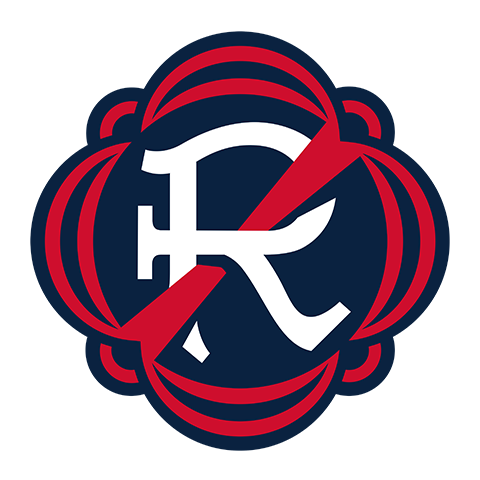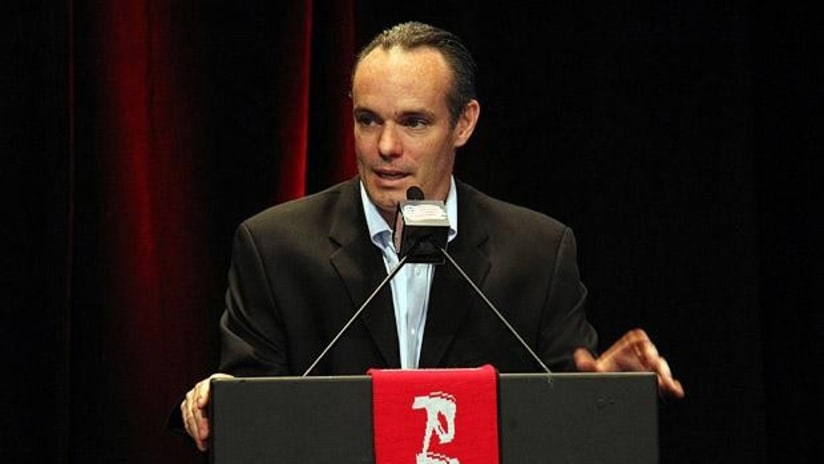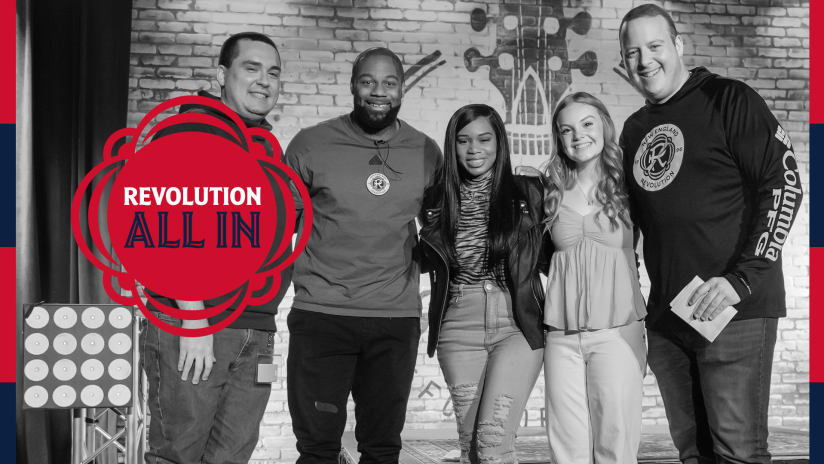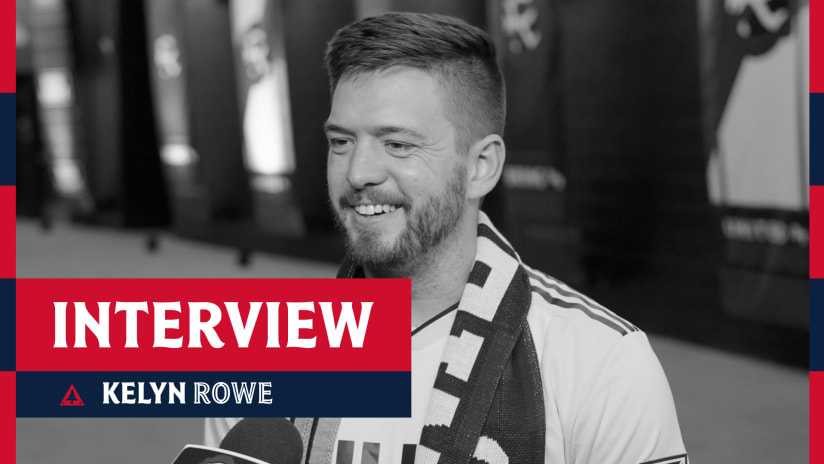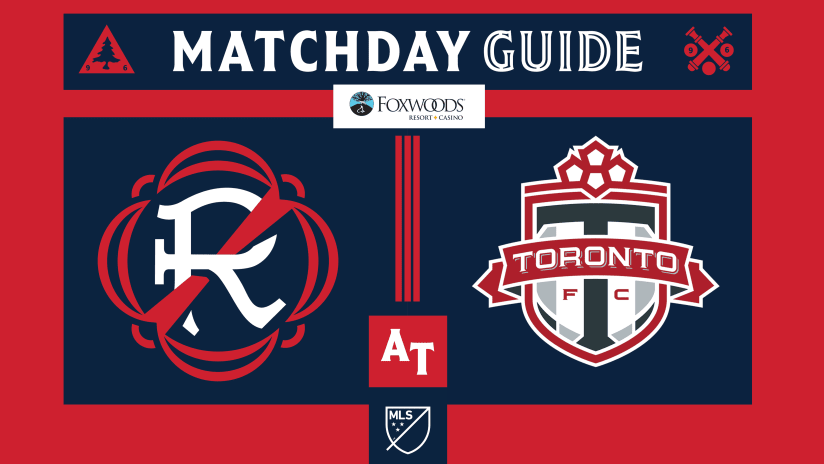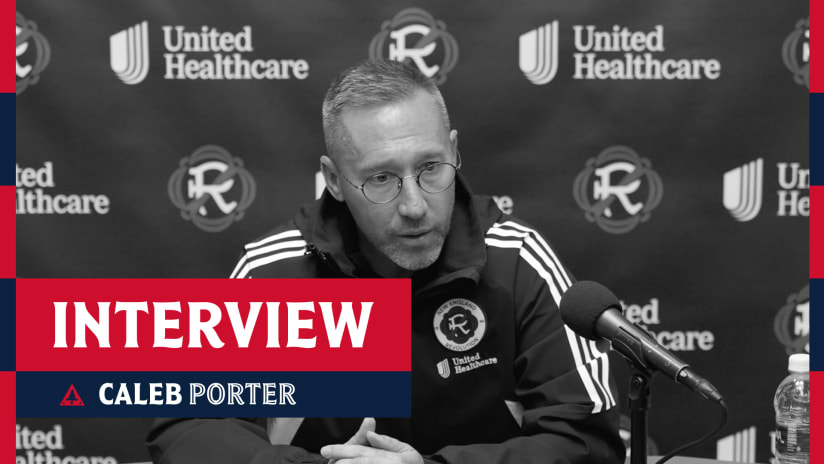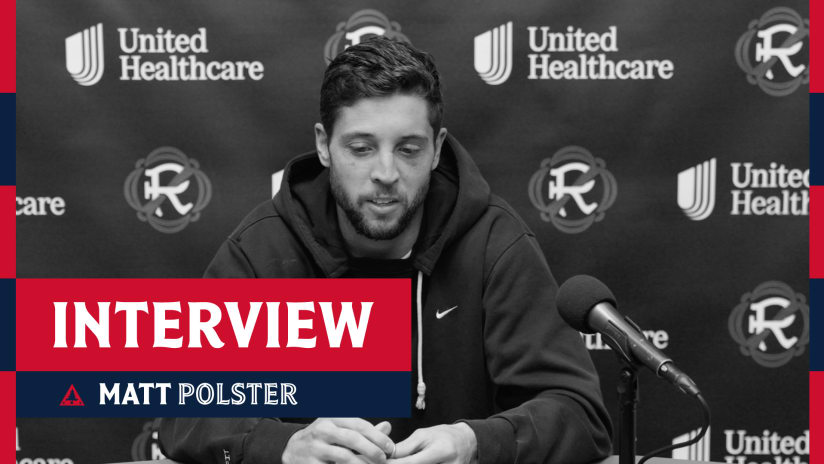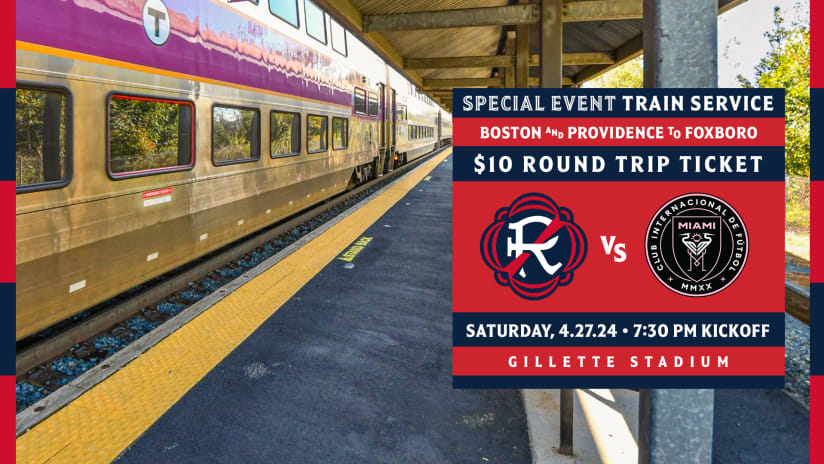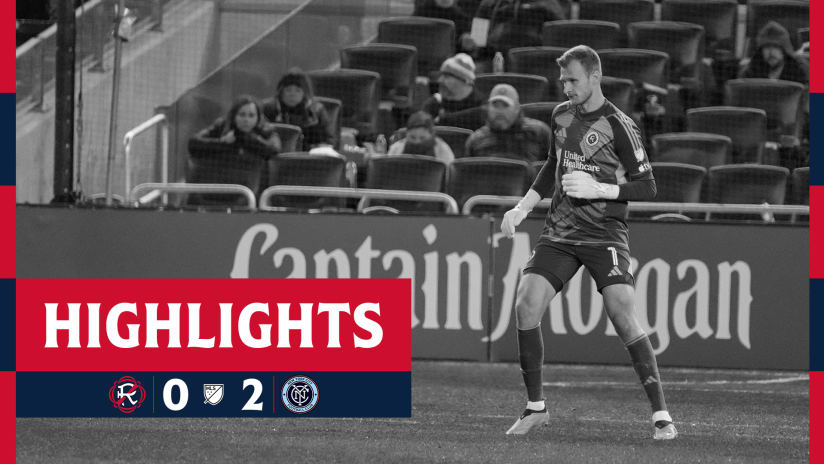BALTIMORE, Md. – Technical staffs from around Major League Soccer descended on Baltimore’s Inner Harbor on Wednesday afternoon as clubs prepare for Thursday’s 2011 MLS SuperDraft at the Baltimore Convention Center.
Vice President of Player Personnel Michael Burns is a key part of the Revolution’s traveling contingent, and I caught up with the former Revs’ captain to get his thoughts on the MLS Combine and his staff’s approach in Baltimore.
You avoided most of the nasty weather by traveling directly to Baltimore from Ft. Lauderdale, where you attended the 2011 MLS Player Combine. What were your overall impressions of this year’s Combine and what are your thoughts on this year’s draft class?
The Combine, for me, has been fairly consistent the last few years in the sense that it’s not the ideal time for the players. Most of them have been off for a couple months after the college season and then you have the holidays, but I think it went true to form.
The first day’s a little hectic and there are obviously nerves on the players’ part. They’re not quite as familiar with each other as they are with players on their own college team. They have no training sessions, so it takes a little bit of time to get used to each other. So the first day is kind of working out the kinks a little bit. It’s always the second and third days – for me anyway – that it seems to be a little bit better. The players seem to calm down, play a little bit better and I think that happened again this year. So it went kind of as expected at least in my opinion.
It’s certainly not a perfect system, but what really is a perfect system? I think I’ve always said this: we take the draft and the Combine very seriously. I think it served a purpose and it was productive.
With that said, the Combine only last three days. Most of these players have been showcasing their talents for three or four years with their college teams, so does the Combine ever really change your perspective of a player in such a short amount of time?
I don’t know if it really changes your perspective, but it’s good to see them in an environment where they’re playing with and against players that are at a comparable level. You look at the college game – and you can pick out any college team – [the season’s] only 20 games and it’s in a relatively short period of time. Some of those games are going to be competitive and some of those games are going to be blowouts. So it just gives you a good environment to see these players playing with and against players that are on a comparable level.
When you sit down with the rest of the technical staff prior to the draft and discuss players of interest and potential areas of need, how much are those discussions affected by the international scouting you’ve done this offseason? For instance, say you already had a left back lined up as you did with Didier Domi, how much does that affect where you look in the draft?
I think you just put together your “board,” if you will, of your top 10, 20, 30, 40 or 50 players and then you just see how the draft progresses. We know we’ll have our board and unless we trade [the sixth overall pick], we’ll have five teams draft ahead of us. Then you literally make that decision because you don’t know who the first five guys [are going to be] and who’s going to be gone. Then you might say, “Oh, you have these guys – a defender, a midfielder and a forward, and what might be more of a need?"
It’s a little bit of a game within the game. Because if you’re [looking for a defender] and the first three picks are defenders, then do you want to take a top midfielder or forward instead? You literally see who the first five picks are and then you make that decision. You really don’t know for sure, obviously, unless you’re the number one pick.
Should you end up keeping the sixth overall pick, are you confident that no matter who is taken with the first five picks that you can get a player who’ll contribute in 2011?
We hope so. That’s always the goal, whether it’s the first round, second round or third round. This is the highest pick we’ve had in a long time – kind of unfortunately.
It’s not an exact science and you don’t want to be repetitive saying this same stuff every year, but you look at every single draft in every single sport – including MLS – and there will be someone picked in the second or third round, or even the Supplemental Draft, who will make a contribution to an MLS team this year. Our goal is to try to find the guys who are going to [best] contribute to us. That’s how it goes and that’s how we approach it.
For sure, not all players (selected) in the first round are going to make contributions this year. It’s the way it is. It’s not an exact science. You do your best to do your homework and at the end of the day you have to kind of make a judgment and a gut call on who you think is the right guy.
The lobby bar in the hotel the night before the SuperDraft is a busy place. It’s not unusual to see technical staffs off in corners having private discussions, presumably about trades. We always see a few moves around draft time, but how many more discussions are had that we never hear about?
I’d say two percent of the deals actually get done of all the discussions and all of the meetings that take place between teams. Whether it’s moving up, moving down or trading. Whether it’s allocation, players or draft picks. It’s part of the deal.
Most of us have been doing this for a little while now so you know most of the people on other teams. It’s just an interesting couple of days, really. Most of it ends up not materializing, but for sure there’ll be a thousand rumors between now and 12 o’clock tomorrow afternoon. It’s part of it.
